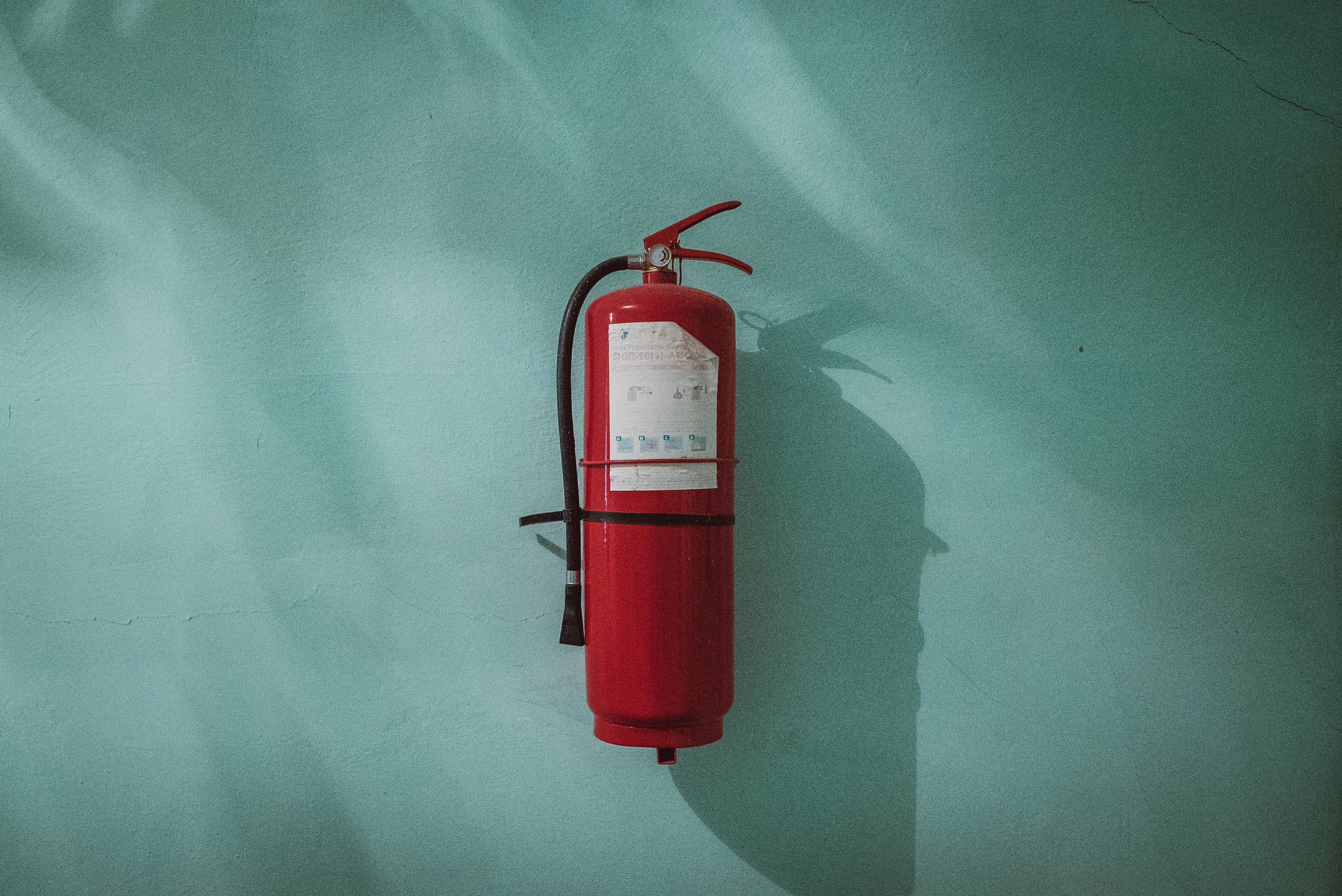Fire Extinguishers
Fire Extinguishers

Fire extinguishers are provided throughout UCF owned campus buildings where required by NFPA 10 and the State Fire Marshal. The UCF Fire Extinguisher Maintenance Program is managed by the Fire Safety Coordinator in Environmental Health and Safety and funding for the program is provided by Physical Plant for E&G facilities and billed equally to Auxiliaries in their proportion.
Fire Extinguisher Monthly Inspections
Fire extinguishers in your area should be checked monthly to ensure proper operating condition. Use this guide to understand how to perform quick monthly checks for your area’s extinguishers: Fire Extinguisher Monthly Inspection
Fire Extinguisher Maintenance Request
To request fire extinguisher maintenance, arrange swap out, or to report a missing or damaged extinguisher please email: Fire Extinguisher Maintenance Request.
Please include the following information in your request:
- Location of the fire extinguisher including:
- Building name
- Building number
- Closest room number
- Type of service needed (e.g., damaged, missing, etc.)
- The serial number of the unit, if available
Fire Extinguishers in Buildings
The campus currently has approximately 3000 units in inventory. Only those required by code are provided in building design. In an effort to keep costs down, areas are periodically reviewed for optimal placement of units to avoid over coverage. Departments wishing to have extra units in place (see Specialty Extinguishers and Vehicles) for special needs may request them and fund accordingly.
Fire Extinguishers in Vehicles
Vehicle units should only be provided when required by regulating agencies for DOT and response vehicles where staff with adequate skills have sufficient training to use them properly. At this time there is only a charge to provide units for new installations\vehicles or for replacement of the missing at $55 per 10lb extinguisher. The budget does not cover vehicle brackets though we can refer you to suppliers on the web.
While we provide the unit at the start, the department which requests vehicle units is responsible to ensure they are maintained properly. Visual inspections should be done at least monthly to ensure it is still in good standing and to verify when service is needed. They are good for 1 year from the date punched on the tag, at which time they need to be swapped out with another unit since tagging in place is not practical. Inventory is limited with the priority being for campus buildings. Requests will be serviced as soon as possible.
Specialty Fire Extinguishers
Costs for new extinguishers such as those required for kitchens (Class K) and combustible metals (Class D) are to be covered by the department/project bringing in the new hazard. The local maintenance contract vendor typically offers a competitive price and facilitates convenient ordering and delivery. The department may provide an account number for reimbursement and the unit will be ordered, inventoried and delivered by our office for your convenience. Units purchased direct such as with P-card should be verified to be to campus standard and our office notified to include the new device in the annual maintenance rounds.
Fire Extinguisher Service
Units are required to receive a licensed vendor inspection once annually with the new tag provided. Units with an outdated or missing tag, missing pin seal or showing a gauge pressure beyond the green zone are considered out of compliance and are to be turned in for service. Annual tags may appear as a hanging tag on the front or stuck on the side.
Fire Extinguisher Loaners
Occasionally the need arises where fire extinguishers may be needed on a temporary basis. Loaner extinguishers are available in conjunction with approved University activity or an approved campus Safe Event Form. Event or University staff may sign out an extinguisher and\or stand for temporary placement. If the loaner is vandalized or stolen the replacement costs are due from the responsible party\department\event sponsor.
Fire Extinguisher Training
Fire extinguisher training classes are offered periodically schedule permitting. Departmental groups of at least 8 verified participants may request a session locally. A new training simulator with low environmental impact was recently made available to facilitate training sessions at more convenient locations closer to campus buildings.